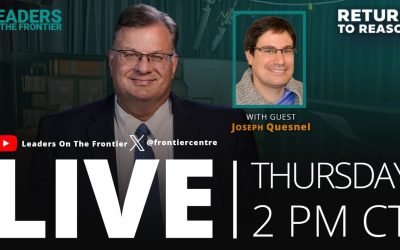New public opinion survey “intellectual baby talk”
On Thursday, October 18, 2012 a new report was released entitled “Climate Change in the American mind – Americans’ Global Warming Beliefs and Attitudes in September 2012”. The report and the public opinion survey it discussed were produced by the Yale Project on Climate Change Communication and the George Mason University Center for Climate Change Communication. These are the same people who produced the bias-riddled October 9, 2012 Climate Change in the American Mind report about another of their recent polls, that one concerning U.S. public opinion about the connection between extreme weather and global warming. I wrote about the problems with that survey for PJMedia out of Los Angeles here.
As was the case with the October 9th survey, climate change campaigners and their allies in mainstream media quickly reported uncritically on the October 18th report:
“Poll: Growing Majority Of Americans Understand The Earth Is Warming And Humans Are The Cause” proclaimed the alarmist site “Think Progress”.
“Americans increasingly believe in global warming, Yale report says”, blared the Los Angeles Times.
“70% of Americans say global warming is real” exclaimed the Detroit Free Press.
But the new Yale/George Mason study is a seriously flawed report describing yet another biased and meaningless public opinion survey. Like practically all other polls on the subject, they failed to ask respondents the only questions that actually matter from a public policy perspective, questions like the following (which must be asked in this order):
“Which of the following do you think is true about global climate over the past half century? (answers must be rotated so that any placement bias will be minimized)
- It has warmed significantly.
- It has cooled significantly.
- It has neither warmed nor cooled significantly.
- No opinion/don’t know.
For those respondents who think it has either significantly warmed or cooled globally, the following question should then have been asked:
“Which of the following do you think is true?” (answers must be rotated)
- Carbon dioxide produced by human activities, such using gasoline combustion to power automobiles, has caused most of the change you think has happening.
- Natural factors have caused most of the change you think has happening.
- No opinion/don’t know.
For all respondents, the following question should then have been asked next:
“Which of the following do you think is true?” (answers must be rotated)
- Carbon dioxide produced by human activities will most likely cause dangerous climate change in the foreseeable future (e.g., extreme warming or cooling, drought and/or flood, increased extreme weather).
- Human produced carbon dioxide is unlikely to cause dangerous climate change in the foreseeable future.
- No opinion/don’t know.
For all respondents, the following question would naturally follow (choose one only)
How much of an increase in your cost of living would you accept to reduce carbon dioxide emissions? (answers should be presented in this order)
- None.
- Up to 1%.
- Between 1% and 5%.
- Between 5% and 10%.
- Between 10% and 25%.
- Between 25% and 40%.
- More than 40%.
- No opinion/don’t know.
Finally, all respondents should have been asked:
Which of the following would accurately describe your understanding of climate science:
- I have no, or practically no, knowledge in the field.
- I have some knowledge in the field.
- I have considerable knowledge in the field.
- I am an expert in the field.
Note that there is no bias in the above questions towards warming, cooling or stable climate. There is no preamble referencing what is being said in the media, government or among activists. There are no agree/disagree questions that result in the sort of acquiescence bias that destroyed the significance of much of the October 9th survey. All that is being asked about are the respondents’ opinions about the issues.
Contrast this with how the October 18th Yale/George Mason survey starts (see p. 17 here):
Question #1: “Recently, you may have noticed that global warming has been getting some attention in the news. Global warming refers to the idea that the world’s average temperature has been increasing over the past 150 years, may be increasing more in the future, and that the world’s climate may change as a result.
What do you think: Do you think that global warming is happening?”
This is clearly a leading question. Saying that “global warming has been getting some attention in the news” implies that journalists and other opinion leaders think global warming is actually happening (otherwise, why would they give it attention?). Research shows that people are more likely to agree with something, regardless of their real opinions, if they perceive a stance to be politically correct. This is called “social desirability bias”. In today’s politically correct climate, there will always be some of this bias handicapping any poll on global warming but it is made worse when the pollster reminds respondents about current fashionable thinking before asking questions. Regardless, some scientists have spoken about global cooling and that has been in the news too. Choosing to mention warming or cooling coverage leads respondents to answer more in one direction or the other and so has no place in the preamble to the question.
The second part of the preamble is even worse. Yale/George Mason survey coordinators define global warming as “the idea that the world’s average temperature has been increasing over the past 150 years …” in other words, since 1862.
Why that time interval? Perhaps because everyone who knows anything at all about climate history agrees that it is warmer now than at the end of the Little Ice Age. If the public was well informed, the support for “global warming”, as the survey coordinators defined it, would have been 100%. Here’s what would have been the case if they had chosen different time intervals:
- Since 1998, the world has slightly cooled;
- Since 1996, the world has neither warmed nor cooled.
- Since 1980, there has been a slight warming trend and, of course the same is true for all dates back to 150 years ago, although there have been cooling trends that have lasted up to decades within that century and a half.
- Since 1,000 AD, during the Medieval Warm Period, it has cooled.
- Since 600 AD, it has warmed.
- Since 150 BC, during the middle of the Roman Warm Period, it has cooled.
- Since 1,350 BC, during the Minoan Warm Period, it has cooled.
- Since 2,800 BC, it has warmed.
- Since 4,000 BC, during the Holocene Optimum when Earth was warmer than at any time since the end of the last glacial period, it has cooled significantly.
- Since 20,000 BC, the depth of the last glacial period, it has warmed a great deal.
- Since 125,000 BC, the height of the last interglacial warm period, it has cooled.
- Since 600,000 BC, the height of an even warmer interglacial, it has also cooled.
- Since 75 million BC, when our solar system was between spiral arms in the Milky Way Galaxy, it has cooled greatly. In fact we are in one of the cooler periods in Earth’s history right now.
And so on back through the 4.6 billion year history of the Earth.
ICSC Chief Science Advisor Professor Bob Carter of James Cook University explains,
“Whether it’s warming or cooling is entirely a function of the length of the piece of climate string you choose to cut off.”
The end of the Yale/George Mason definition of “global warming” is absurd,
“Global warming refers to the idea that the world’s average temperature …may be increasing more in the future, and that the world’s climate may change as a result.”
Well, of course there may be more global warming in the future. There may also be global cooling. This is not a definition of anything.
And considering that temperature is obviously an important part of climate, the last part of this definition is like saying that climate change may result in climate change.
So, the Yale/George Mason University pollsters define global warming as being a combination of three phenomena:
- One that is known, without question, to have happened.
- One that might happen in the future.
- One that is self evident, referred to by linguists as a tautology.
Since the question is based on this juvenile and deceptive definition of global warming, clearly, question #1 in the Yale/George Mason October 18, 2012 poll, “Do you think that global warming is happening?”, is useless. With much of the rest of the report and the survey based on this Alice in Wonderland-like definition, it is difficult to see how most of the poll results can be of any use.
To be fair, it must be admitted that some of the survey results concerning the following will be useful to participants in the climate debate, especially those entrusted with formulating climate policy:
- How well informed respondents feel.
- Whether respondents are open to changing their minds on the topic.
- Who they most trust as a source for information on “global warming”.
- How much they think about the topic.
- How important the topic is to respondents.
However, towards the end of the survey we see the same problem that I reported on when discussing the Yale/George Mason October 9th survey—Acquiescence Response Bias due to asking agree/disagree questions. Specifically, they asked:
How much do you agree or disagree with the following statements?
- The actions of a single individual won’t make any difference in global warming.
- New technologies can solve global warming without individuals having to make big changes in their lives.
- Most of my friends are trying to act in ways that reduce global warming.
- I have personally experienced the effects of global warming.
But how does one “solve” a problem, or “reduce” it, if the respondent does not:
- Believe it is happening.
- Believe it is a problem, if they believe it is happening.
- Know whether or not it is happening or is a problem.
This then is another leading question since it was asked of all survey respondents.
ICSC Policy advisor Lord Christopher Monckton of Scotland best sums up the new report and the poll it is describing as “intellectual baby talk.”
_____________________________________
Tom Harris is Executive Director of the International Climate Science Coalition (climatescienceinternational.org/) and an advisor to the Frontier Centre for Public Policy.


